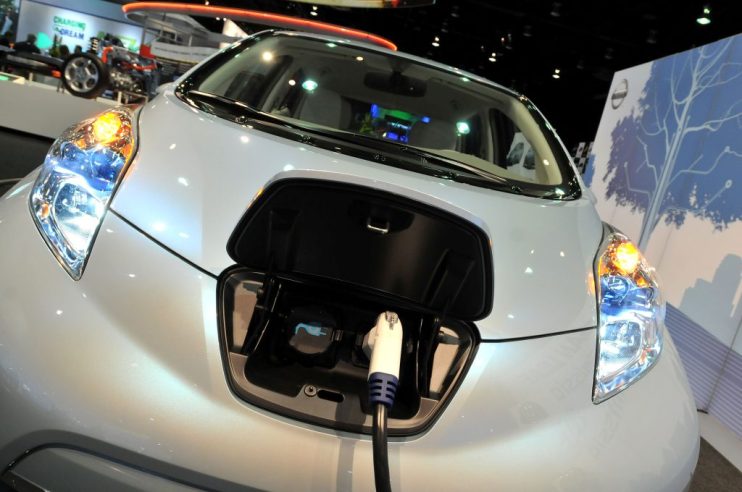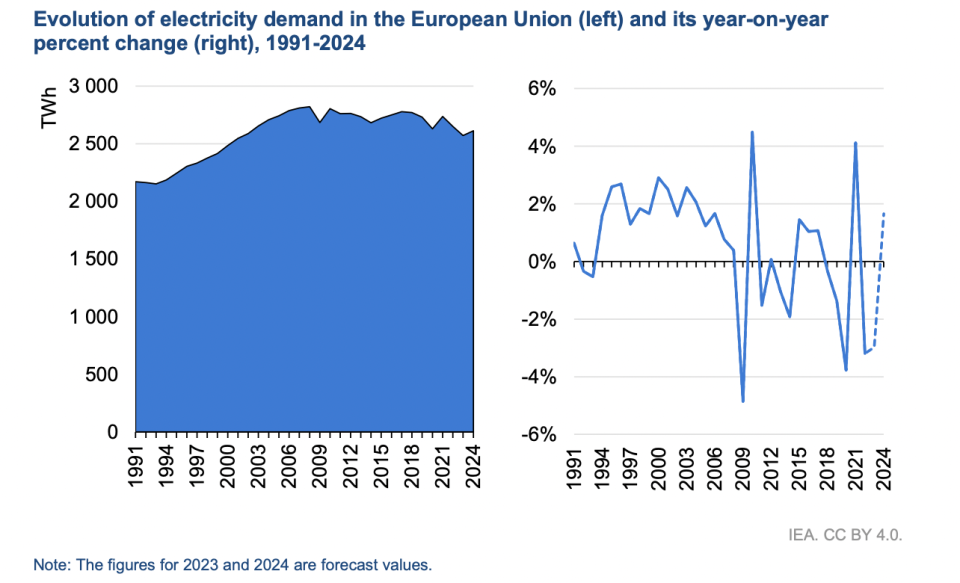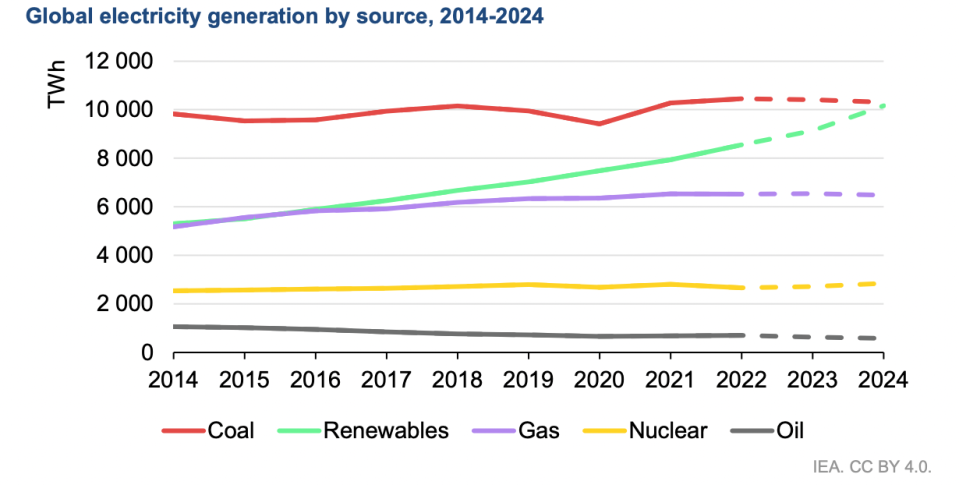Global electricity demand expected to slow as recession fears take hold, says IEA

The energy crisis and challenging financial conditions across developed economies means that global growth in electricity demand is expected to slow this year, the International Energy Agency (IEA) predicts.
The Paris-based climate group’s latest monthly report on the global electricity market reveals that the growth in demand for electricity across developed economies has slowed.
Electricity demand in the US is now expected to decline by almost two per cent this year, while demand in the EU is set to drop three per cent, similar to the decrease recorded in 2022.
This is the second consecutive year of declines for the EU, with electricity consumption now poised to drop to levels last seen in 2002.
Almost two-thirds of the net reduction in EU electricity demand last year is estimated to have come from energy-intensive industries producing less as they dealt with rising energy costs.

The IEA warns this trend has continued well into 2023, despite prices for energy, commodities and electricity falling from previous highs.
This has led the group to forecast that global electricity demand will increase by slightly less than two per cent this year, down from a rate of 2.3 per cent in 2022.
China and India are powering electrification demand this year, with the two countries expected to increase their demand by 5.2 per cent and 6.5 per cent respectively.
Elsewhere, the IEA forecasts that renewables’ share of global electricity generation could exceed one-third by next year amid a vast ramp up in solar panels, wind turbines and electric vehicles.
Keisuke Sadamori, the IEA’s Director for Energy Markets and Security, said: “We’re encouraged to see renewables accounting for a rising share of electricity generation, resulting in declines in the use of fossil fuels for power generation. Now is the time for policy makers and the private sector to build on this momentum to ensure emissions from the power sector go into sustained decline.”
It now expects electricity generated from fossil fuels to decline in four out of the six years between 2019 and 2024 – raising hopes the transition to clean energy is taking hold.

This means that, depending on weather conditions, 2024 could become the first year in which more electricity is generated worldwide from renewables than from coal.
Electricity generated from oil is projected to fall significantly, while coal-fired generation will slightly decline in 2023 and 2024, after rising 1.7 per cent in 2022.